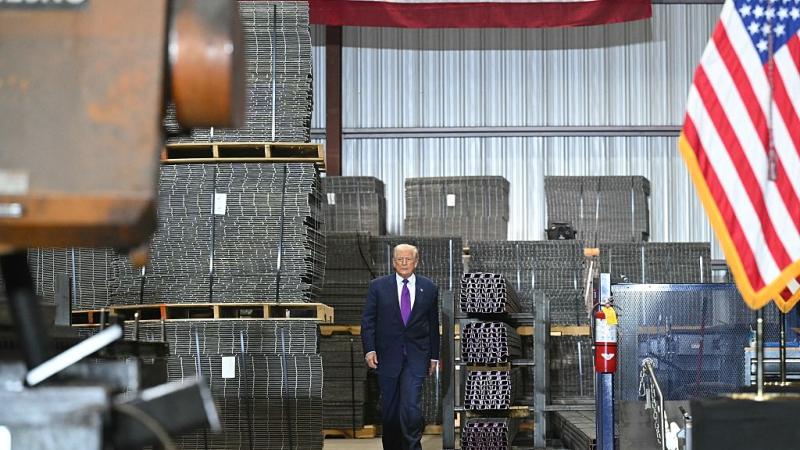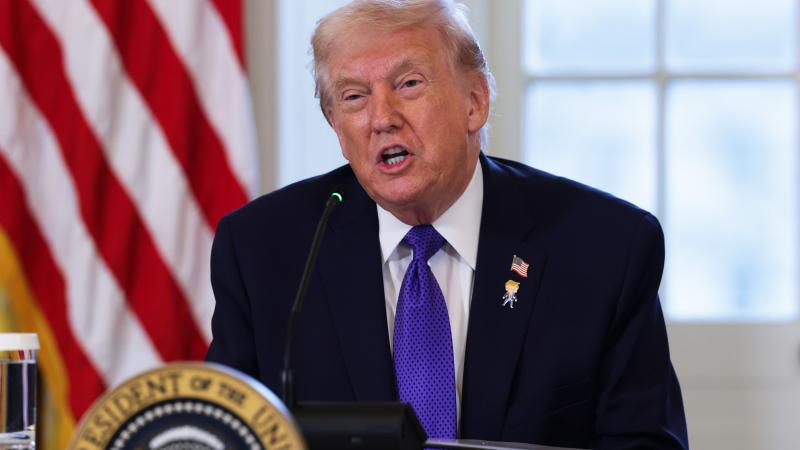Former House Intelligence chair calls on GOP to expose US corporate ties to Beijing
"Congress has to focus on getting serious," said former California Republican Rep. Devin Nunes. "U.S. companies doing business with China: That's really the key here is figuring out and trying to decouple ourselves from China."
The former chairman of the House Intelligence Committee on Friday urged his former colleagues in Congress to spotlight the extent of Chinese influence in the U.S. economy and pursue an economic decoupling from Beijing amid mounting tensions between the U.S. and China.
Former Rep. Devin Nunes (R-Calif.) recalled former President Donald Trump's aggressive approach to repatriating U.S. jobs that had been outsourced to Asia and asserted that such economic policies ought to form the basis of a renewed push to decouple economically from Beijing.
"No one, including me, thought that he was really going to slap tariffs on to the Chinese," Nunes said on the "Just the News, No Noise" television show. "And he did it. And I actually wish that a lot of the people that want to be president or even the people in the media, I wish they'd focus on what was really Donald Trump's priority, which was bringing jobs back to America.
"And let's have a discussion in this country and a campaign on whether or not President Trump's tariffs were proper. Were they enough? Did they work? What can we do more?"
The former California lawmaker stressed the importance of curbing U.S. corporate ties to China. "Congress has to focus on getting serious," he said. "U.S. companies doing business with China: That's really the key here is figuring out and trying to decouple ourselves from China."
He went on to highlight the "financial companies based out of the United States that have strong financial ties to China."One of those institutions was Silicon Valley Bank, which had nearly $14 billion in foreign deposits prior to its collapse last week.
The Biden administration's approach to the collapse, however, appears to move in the opposite direction of Nunes' proposal.
Treasury Secretary Janet Yellen has promised that taxpayers will not bear the burden of federal intervention in the bank's collapse. The administration's plan entails using the Federal Deposit Insurance Corporation's (FDIC) reserves, combined with fees it levies on banks, to insure depositors beyond the normal limit of $250,000.
Yellen confirmed this week that the FDIC backstop would insure foreign depositors, including many Chinese startups, among which the bank was popular.
Citing the ongoing investigations of the Biden family's foreign business ties, several of which involve Chinese firms, Nunes suggested that exposure of such links might discourage future U.S. corporate investment in China.
Among the troubling Biden family business dealings with Beijing was the Hunter Biden-facilitated sale of Henniges Automotive to Chinese military aircraft manufacturer Aviation Industry Corporation of China (AVIC). That deal raised national security concerns due to the Michigan-based manufacturer's production of anti-vibration technology with the potential for use in fighter jets.
"Congress has to focus," Nunes said, "because bringing sunlight to this and trying to disinfect and show the American people just how tied [to China] we are, maybe it will have that impact of giving a second thought [to] many people in this country who just want to make a buck, i.e. the Bidens."
Ben Whedon is an editor and reporter for Just the News. Follow him on Twitter.
















